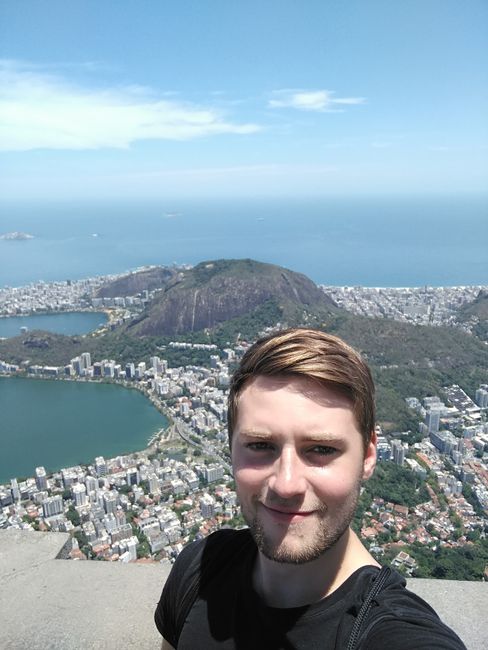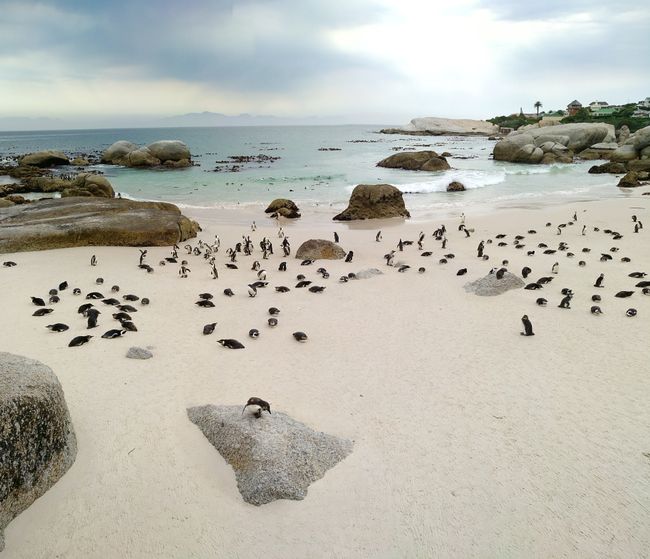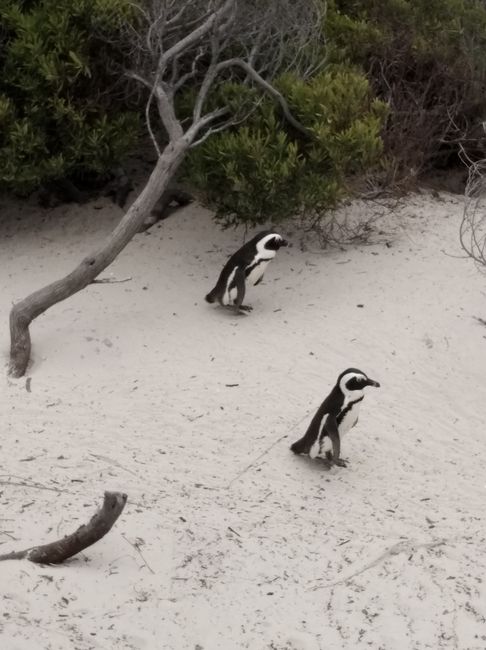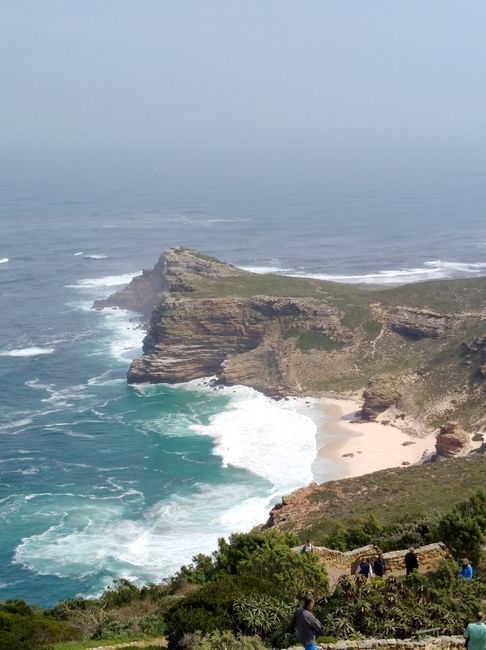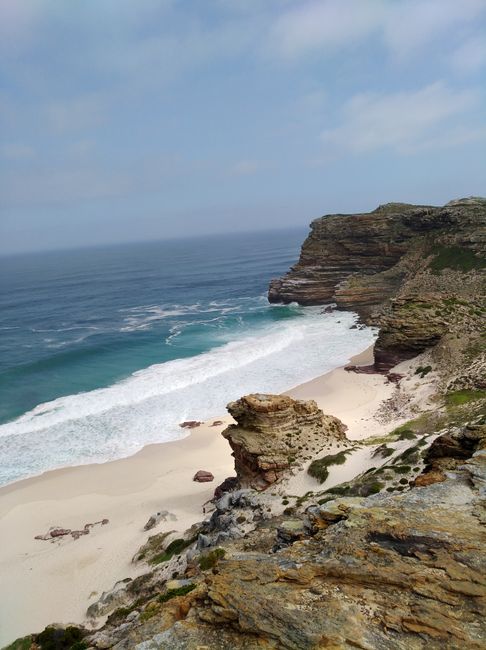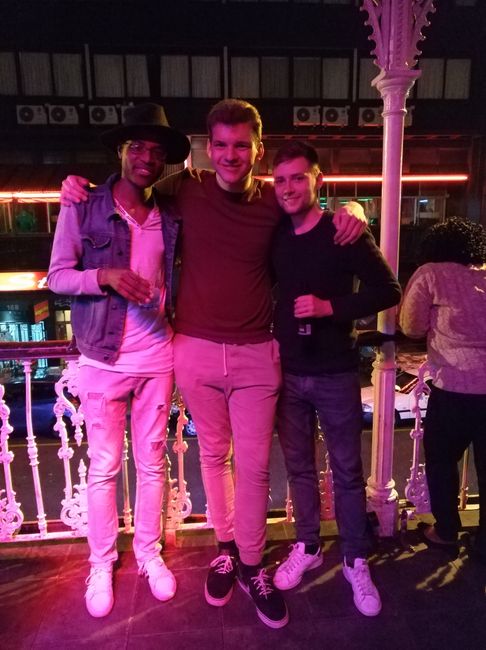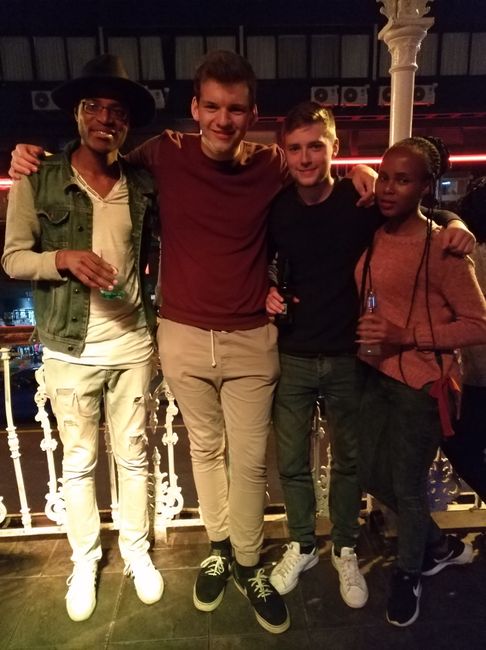From Cape of Good Hope to Long Street
Објавено: 22.09.2017
Претплатете се на билтенот
Three days had passed in Camps Bay and it was time to move to the city. Today's plan included a tour to Cape of Good Hope, which started at an ungodly hour of 8:50. Luckily, as the first passenger, I could choose my own seat on the bus and opted for the business-class-like seat at the front of the upper deck. After picking up everyone else, we headed towards Boulders Beach to see penguins. I used to have the slightly unrealistic dream of keeping a penguin as a pet, but I said goodbye to that idea upon entering the area because, as much as I love them, those creatures smell like two-week-old fish. Nevertheless, it was a beautiful experience as I had always wanted to see penguins in their natural habitat.
But what impressed me the most was our tour guide, who managed to talk non-stop for almost the entire two-hour bus ride. Some stories were quite interesting, while others were not so much.
We continued to Cape Point National Park on the Cape Peninsula, which initially seemed quite bleak but impressed with its incredibly diverse flora. The park covers 77 square kilometers and is home to over 1100 species, approximately a quarter of what is found in Germany.
Upon arrival at the park, we headed to the southern end of Cape Point, where we were driven to the top for 65 Rand (1€ = approximately 15 Rand) and were allowed to visit a rather unspectacular lighthouse and take photos at Cape of Good Hope.
Things got more exciting when our group of 42 people embarked on a 45-minute hike to Cape of Good Hope. Since this hike turned out to be quite challenging and we had people of all ages, from toddlers to seniors, it took a while to reach the southwesternmost point of Africa.
In 1488, the Portuguese explorer Bartolomeu Dias became the first European to sail around the Cape, thus finding a lucrative sea route to Asia. Until then, it was uncertain whether this was even possible and whether the world would suddenly end somewhere along the way.
The Cape supposedly got its famous name from Portuguese King João II, although other sources claim that Bartolomeu Dias had already used the name Cabo da Boa Esperança (Cape of Good Hope). In the end, it's just splitting hairs.
Back in Cape Town, I stayed at the Ashanti Gardens Hostel near Long Street, which turned out to be really nice. The bad news was that I had to sleep in an eight-bed dorm, but the good news was that I had the entire room to myself. The biggest disappointment of the day was the cancellation of the advertised beer pong tournament at the entrance, supposedly due to a lack of beer. Yeah, right...
During the evening, I became friends with the Brazilian bartender Luiz, his German namesake Luis, and a Libyan bush pilot named Muji. Later, Luis and I went towards Long Street, the party street of Cape Town. We were recommended Ace's and Spades Bar near Long Street, which was supposed to be open until 3 am and always lively. The latter turned out to be true, but when the bar closed shortly after 1 am, we had to look for an alternative. Long Street itself is relatively safe due to a strong police presence, but I've been told to avoid the surrounding streets. When we arrived at the second nightclub, we suddenly found ourselves as the only white people in a huge group of students from Kimpoko. Quite an experience.
After witnessing two arrests on the street and grabbing the obligatory late-night snack at the Indian restaurant, we took a taxi back to the hostel and finally went to bed.
Претплатете се на билтенот
Одговори

